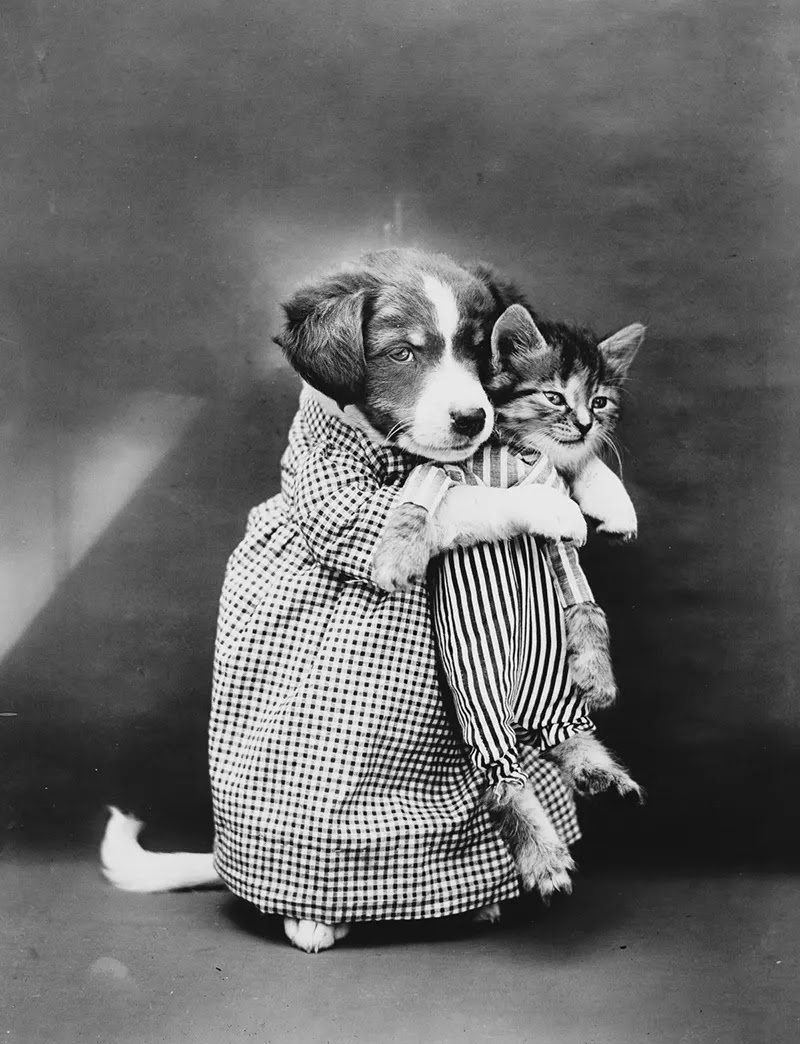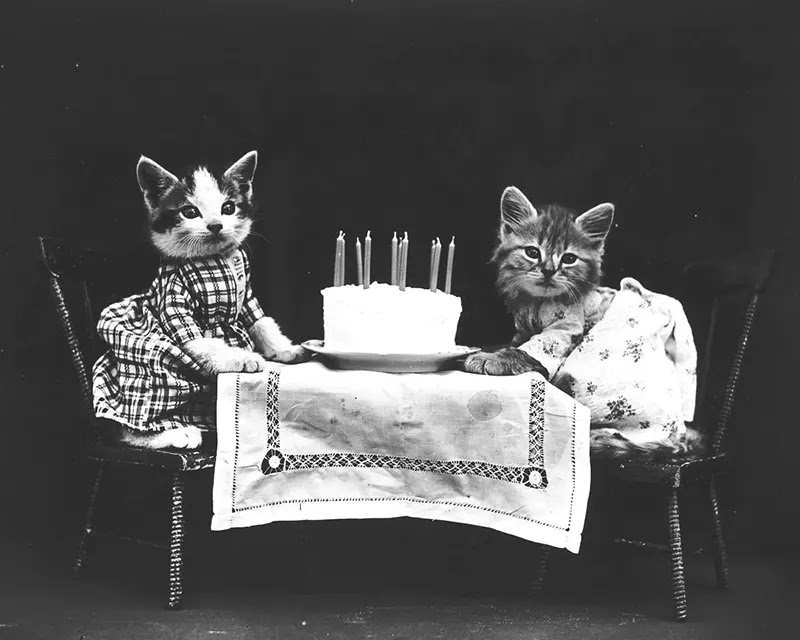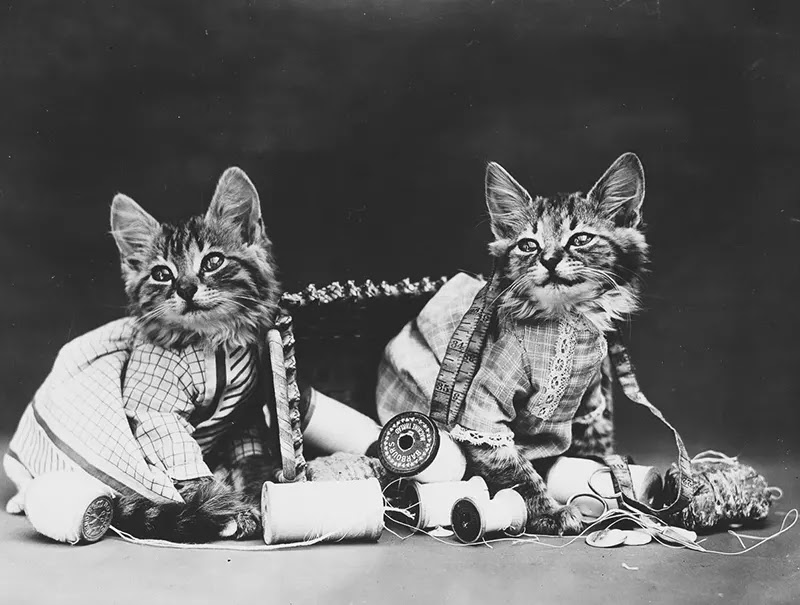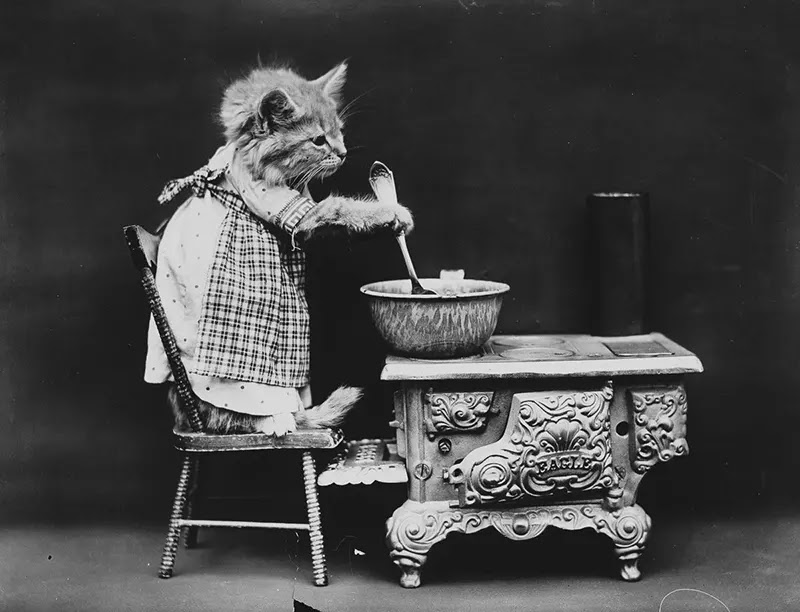Adorable vintage photographs of animals dressed up as people, 1910s

American photographer Harry Whittier Freese created novelty postcards with his photographs of animals placed in human situations.
This 1910s photo collection features quirky but adorable animals dressed up and posing as humans, often with the caption; These can be seen as the ancestors of the modern Lolketes.
Although he began photographing cute animals in 1902, he didn't begin to dress them up in tiny human costumes until 1905.
As the story goes, their "eureka moment" came during a family birthday party. People were passing by and trying on a paper cap.
Someone stuck it on the family cat and Freese drew a picture. One postcard maker liked the shot so much that he used it, and the image was an instant success.
Using live models and, reportedly, no photo trickery, freeze frames became popular illustrations for novelty postcards, books, calendars and magazines. He published several books of his work.

Freeze presented scenes for animals that were part of a fire brigade, from activities in the kitchen to puppies.
They made miniature props and pieces of furniture themselves, and there seemed to be no limit to what they would try: a movie studio camera, a miniature bed, a wash tub, an ironing board, a ladder, an old-fashioned A microphone, a scooter, and a sled, to name a few of the items he made. He used 1/5th of a second exposure and held the animals in position using a rigid dress, pins and forks.

On the choice of cats for their photographs, Frieze states in his book Animal Land on the Air: Rabbits are the easiest to photograph in costume, but are unable to pick up on many 'human' parts. Puppies are tractable when properly understood, but the feline is the most versatile animal actor, and holds the greatest variety of appeal.
Overall Freeze was successful, although he did not enjoy lifelong financial stability. He never married, devoting his life to his photography and taking care of his parents. After his death in the 1940s, Freese moved to Clearwater, Florida, where he lived in isolation. At some point, he was diagnosed with cancer.
He died in March 1953. From an obituary in the St. Petersburg Times: "Frustrated by what he believed to be an incurable disease, 74-year-old Harry Whittier Fries of 709 Senaca Street took his own life on Sunday by turning on the gas stove in the kitchen."




No comments: